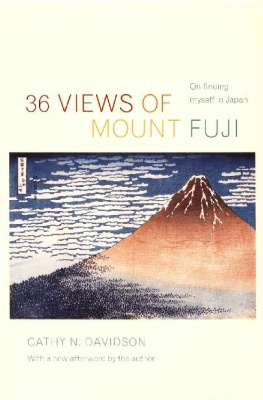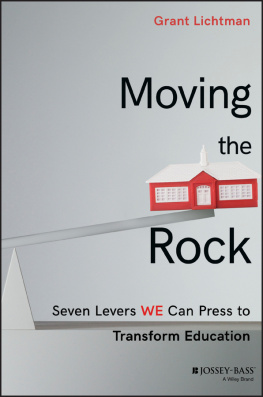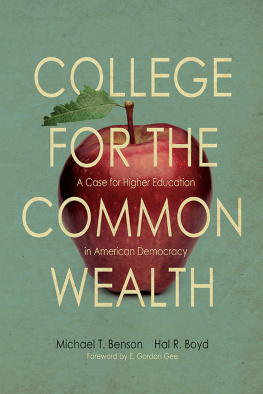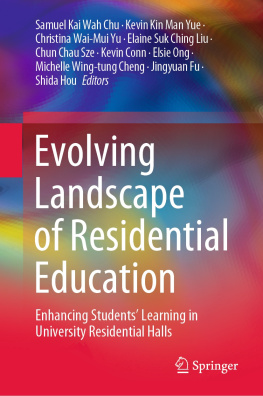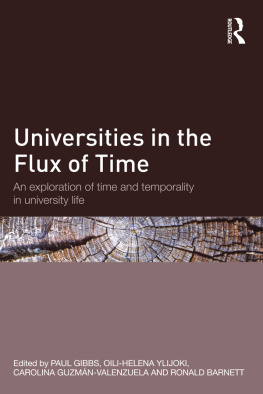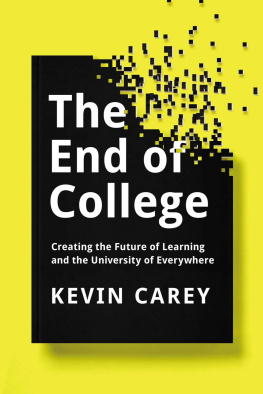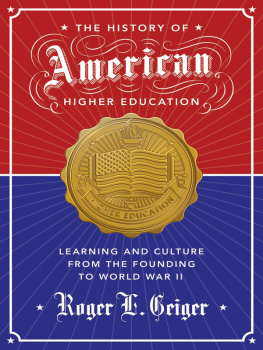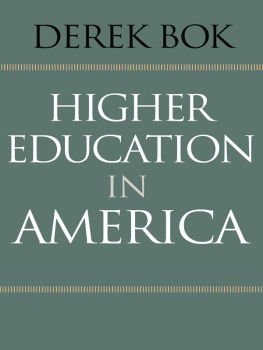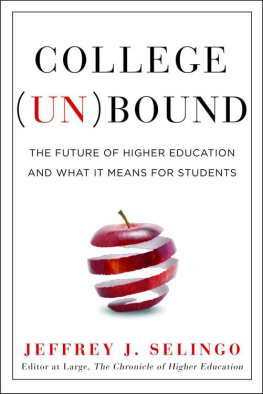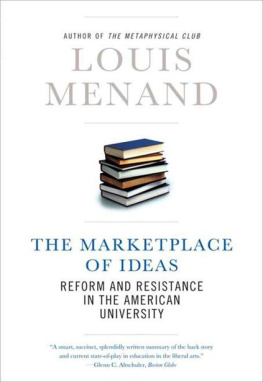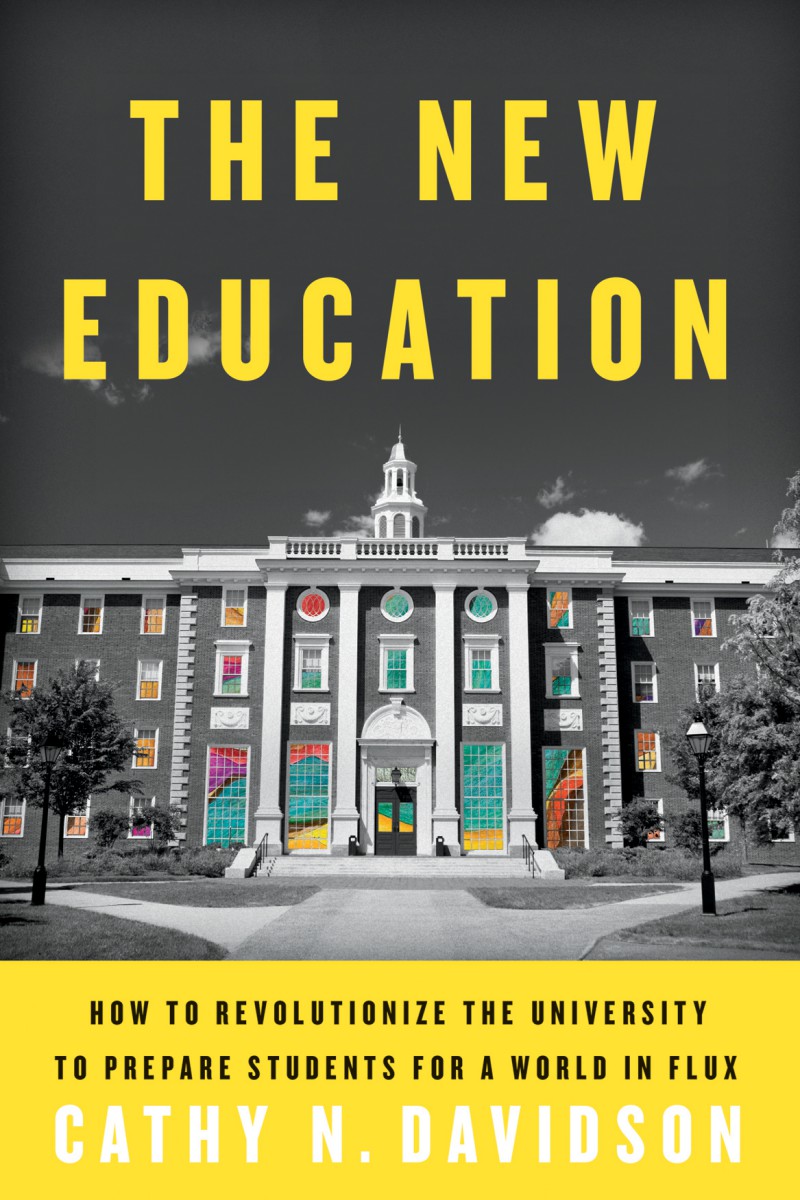Copyright 2017 by Cathy N. Davidson
Hachette Book Group supports the right to free expression and the value of copyright. The purpose of copyright is to encourage writers and artists to produce the creative works that enrich our culture.
The scanning, uploading, and distribution of this book without permission is a theft of the authors intellectual property. If you would like permission to use material from the book (other than for review purposes), please contact permissions@hbgusa.com. Thank you for your support of the authors rights.
Published by Basic Books, an imprint of Perseus Books, LLC, a subsidiary of Hachette Book Group, Inc.
The Hachette Speakers Bureau provides a wide range of authors for speaking events. To find out more, go to www.hachettespeakersbureau.com or call (866) 376-6591.
The publisher is not responsible for websites (or their content) that are not owned by the publisher.
A catalog record is available from the Library of Congress.
This book is dedicated to Millennials and to all future generations. You deserve a better chance than youve been given.
And to parents, professors, pundits, policymakers, and presidents who can work to change higher education before its too late.
I N EVERY MYTH, THERE S A DOORWAY, A PORTAL, A RIVER, A LADDER, a mountain, a pathway. There is a threshold and, if you are the hero, your journey requires you to cross over: you start on one side, and the challenge is to reach the other. There are obstaclesgorges, rapids, bandits, hunger, temptations, cowardice, despair. There are also guides along the way, some wise, some not. How can you tell? Its tricky. As ancient maps portend: Here be dragons.
In modern life, the threshold that looms largest, defining almost all that follows, is the age of majority. One day you are the legal responsibility of a parent or a guardian, the next you are on your own, responsible for making your own way, treading the cliffs edge.
When you are 17 years and 364 days old, your parents can tell you what to do. When you wake up the next morning, 18, they, legally, cannot.
You have crossed over. Before and after.
In individual and social terms, the consequences of that crossing are so vast that they are constantly debated. How old do you have to be to drink? To be tried and executed as an adult? To go to war? To vote? Sometimes it is eighteen, sometimes twenty-one, and there are arguments about which age is more just. Because it matters. And not only to you, the individual, but also to your society.
Your rite of passage represents all of the life-and-death issues that we grapple with together in democracies. We argue over when childhood ends, when adult responsibility begins, when the torch should be passed. Your journey is our journey, your future is ours. How you are prepared to join and perhaps lead a community, a generation, a world, matters to those who have gone before you and those who will come after. The consequences have weight and heft, the journey, peril and promise.
You are crossing from definition by others to self-definition, from dependence on others to legal independence. You are moving from control by others to self-control, from ideas shaped by others to your own ideas, from received opinions to your own ability to determine where you are going next, to discern, evaluate, make judgments, and then to act.
It is a pivotal moment. Existential. You are on your own. This is the stuff of mythology, from the Epic of Gilgamesh forward.
In America, we call it college.
I HAVE WITNESSED THIS TRANSFORMATION THOUSANDS OF TIMES over my long career as a college professor. It doesnt happen for every student in the same way or at the same age, but it is apparent enough that you can drop an academic into any random classroom and we can tell immediately whether we are meeting first-year students or those who have been in college a year or more.
Parents witness the transformation, too. The child who goes off in September is not the adult who returns over Thanksgiving break. Who is this? many a parent has asked about the stranger knocking about their childs old room. Its not just their age that changes but their way of being in the world.
College makes this happenand not only for the young. Depending on how you count, between 40 percent and 70 percent of current students are so-called nontraditional students. Like the eighteen- to twenty-two-year-olds who go away to college and live in dorms, these adult, commuter students are on a journey, making sacrifices of time, money, and attention to strive for a significant change in their lives. The lackadaisical high school graduate who has no idea what to do next, the sixty-two-year-old insurance executive taking night classes to fulfill a lifelong goal of earning a college degree, the student returning from a gap year to enter the flagship state university, the twenty-something Somalian refugee working multiple minimum-wage jobs while taking English as a second language at a community college, and the eighteen-year-old private school graduate with perfect SAT scores on her way to Stanford with an eye on a future career in Silicon Valleylike the rest of the nations college studentsare all volunteers. They voluntarily choose to make college part of their journey toward an adulthood they can live as independently, responsibly, and with as much satisfaction as they are able to achieve.
This book is for all of them, the 21 million students in college today, and for all those students who are on their way to college, wondering whether it is worth it, trying to figure out how to gain the best education possible. It is also for recent graduates, the much-maligned Millennials who have been through college in the last fifteen years.
I believe theyve been given a raw deal.
Why? Because the schooling they received was developed in the late nineteenth and early twentieth centuries to train farmers and shopkeepers to be factory workers and office managers. At the height of the momentous changes to life, work, and society driven by industrialization and the accompanying urbanization, Americas elite Puritan colleges went through a massive redesign, shifting away from their founding mission to train ministers toward the selection, preparation, and credentialing of future leaders of new professions, new institutions, and new companies. Such prescriptive, disciplinary, and specialized training worked well for most of the twentieth century. But it makes a lot less sense for our postindustrial and post-Internet world, in which the boundaries between work and home are far less distinct, work itself is more precarious, wages are largely stagnant, automation is expanding and becoming more sophisticated, democratic institutions are failing, professions are disappearing, and the next shock to the economy is on the horizon, even if we cant see it yet.
Our institutions of higher education are helping young people transform themselves, as they always have, helping them move from dependence to independence, from childhood to adulthood. College is


